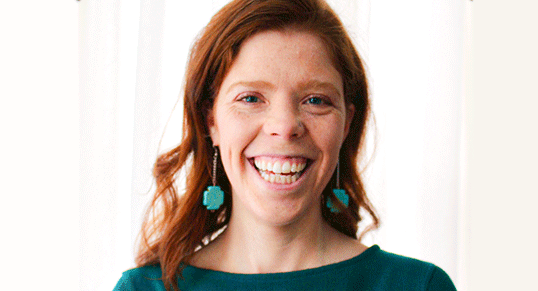In Tri Delta’s new series, “3 For You,” we’re covering the best tips from experts as we navigate our new circumstances during COVID-19. Tri Delta alumna and health care professional Fiona Byrne, Vermont, shares ways we can stay healthy during the COVID-19 outbreak. Read her three tips below, or listen to the podcast.
So much of the uncertainty and unknowns around COVID-19 are centered around staying healthy. We’ve been hearing all the instructions and guidelines about how to care for ourselves in the immediate future. Tri Delta alumna Fiona Byrne, a registered nurse finishing up her first year of medical school, expands on how we can maintain our health for ourselves, our family and our community as we navigate our new day-to-day.
Tip #1 Keep Yourself Healthy
Wash your hands with soap and water for at least 20 seconds. If you are out and can’t wash your hands, use hand sanitizer with at least 60% alcohol. Along the same line, minimize hand-to-face contact. Now is an excellent time to try to break that nail-biting habit! Keeping your hands clean is so important.
Get fresh air and stay moving. This can help keep you physically and mentally healthy. Local yoga studios are offering classes online, or if you need a more flexible schedule, some subscription-based apps are offering their workouts or meditations for free. And our Stay CONNECTDDD page has special fitness offerings from Tri Delta sisters for our members.
Be kind to yourself. Extend yourself the same grace that you are extending others. It’s okay to not pick up new hobbies, not get your full to-do list done, or to grieve a loss of “normal.” There is a lot of messaging out there about all the things you need to be doing, but you don’t need to be doing those things. Maintaining a “normal” is hard enough right now, so just do the best you can.
Tip #2 Keep Your Family Healthy
Routinely clean and disinfect commonly touched objects and surfaces in your house, such as doorknobs, cell phones, keyboards, faucet handles and the fridge door.
Minimize trips to the supermarket and public places. Plan ahead on what you need and try to make one trip a week; if this is working for you, try to spread it out to every 10 days or every two weeks. And remember to have everyone wash their hands when you do return home!
Build a household schedule that takes everyone’s needs into consideration. Structure your day for work/school, free time/play, physical activity, meals and snacks, and bedtime. While it’s good to have a game plan, also allow for flexibility — it’s okay to adapt based on the day.
Be open to inviting joy and gratitude into your homes by connecting virtually with friends and family. This might be a virtual tea time, dance party, writing cards, listening to music that makes you smile, or virtually cooking a meal together.
Tip #3 Keep Your Community Healthy
Practice social distancing by limiting contact with people outside your household. This means staying home as much as possible, and when you’re out keeping six feet between yourself and others.
The CDC is now recommending that everyone two years and older wear a cloth face mask in community settings. This is in addition to social distancing and hand hygiene. The face covering is meant to prevent the spread of virus from the wearer to others, as you can spread COVID-19 to others even if you don’t feel sick. Keep in mind that when you take off your mask, it’s important to use clean hands to remove by the ear-bands and then either wash immediately or discard the mask, and wash your hands immediately. The World Health Organization has a guide on how to take your mask on and off. You can also check online for easy no-sew mask guides or consider ordering from a local tailor/seamstress.
With the closure of many restaurants, bars, shops and other non-essential business for an undisclosed length of time, small business owners are facing significant economic impact. If you have the means, consider buying an online gift card to look forward to using when they open again.
If you are healthy, consider ways that you might be able to help others. This could mean grocery shopping for a neighbor with health issues, supporting your local food pantry, volunteering with Meals on Wheels or donating blood.
Want more? Watch this video, or find more helpful 3 For You topics.

